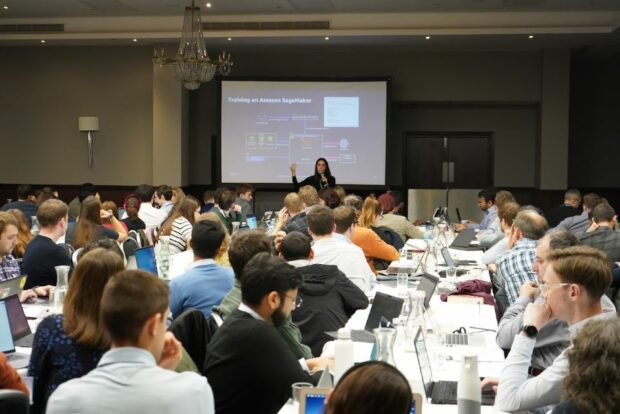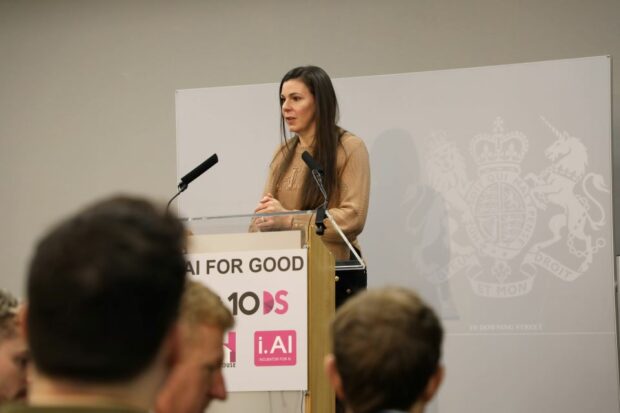
A Modern Civil Service is our vision of a skilled, innovative and ambitious organisation equipped for the future. We've discussed what we mean by 'skilled', but what do we mean by 'innovative'?"
Innovation has a wide range of applications, from policy and service delivery to digital and data. Some of our biggest challenges — Levelling Up, Net Zero, harnessing AI for good — need us to tackle existing issues in new ways. The Civil Service is already doing pioneering and ground-breaking work to tackle these and embedding a culture of innovation will help us prepare for the future.
What is innovation?
There is no single definition of innovation, but having a shared understanding is important to apply it in practice. Innovation is the novel application of ideas, methods and technologies in order to improve outcomes of policies, services or products. It is easy to come up with ideas, but innovation is generating something of value.
Innovation needs a combination of creativity, problem solving and a willingness to take risks, with a culture that promotes proposing and testing new ideas, whether they are successful or not.
Why innovation matters
The public wants to see improved, targeted, responsive services from the government. Innovation helps us ensure public services advance with ongoing changes in our societies. We’re already doing lots of work in this area to embed a culture of innovative and improve many of our biggest services:
- DWP has invented a Passport Benefit Checking Service to identify whether someone qualifies for free medication.
- HMRC has integrated Open Banking, a cutting-edge payment technology and has saved over £1 million in processing costs and reduced error corrections.
- Natural England has pioneered the use of artificial intelligence to restore peatlands, automatically analysing huge volumes of peatland images to identify where maintenance is needed.
- DWP created Grass Roots Innovation Project (GRIP) which is a community of best practice open to civil servants from grade AA to EO, anywhere in the UK, in frontline operational delivery roles. GRIP involves sharing best practice, encouraging innovative ideas, providing feedback and data to Civil Service leaders to improve workplace methods, and supporting career progression.
- Project Spark, by GCS, is a Dragon’s Den style competition to encourage people to submit ideas that GCS will help them to develop, embedding a culture where no one will be penalised for trying something new.
Innovation is being built in our structures, culture and capability to help us deliver continuous improvement and anticipate and prepare for future challenges. As civil servants we should all feel empowered to propose and test out new ideas without fear of failure.
How to build a culture of innovation
“Innovation doesn’t come from the top down. It comes from being able to absorb, build on and scale really good ideas, wherever they come from”
Sarah Munby, Permanent Secretary at the Department for Science, Innovation and Technology (DSIT).
Innovation is the opposite of a process. It is a practice. The best innovators are able to understand the different types of techniques and apply the right one. There is no one size fits all formula but instilling a culture of innovation is key to success.
There are four pillars that are central to an innovative culture:
- Capability: we need to be equipped with the skills and tools to innovate.
- Incentives: we want to celebrate and reward experimental approaches for finding new and better ways of operating and delivering public services.
- A culture of permission and support from senior leadership: leaders must empower teams to experiment and be accepting of failure. Leaders should help build a no blame culture where open communication is encouraged and we can collectively learn from mistakes.
- Access to time, space and money: civil servants must have access to the appropriate 'innovation infrastructure' to take ideas from inception to implementation.
The role of digital and data in innovation

Digital and data are critical components in innovation to drive forward improvements and new solutions. Digital technologies, like AI and automation, can transform traditional processes. Effective use of data allows us to identify trends, anticipate the needs of the communities we serve and identify areas for improvement. The ability to apply these tools to innovate is underpinned by ongoing development of the necessary digital and data skills.
Every civil servant can contribute to building an Innovative Civil Service by embedding a culture of innovation, increasing digital skills and seizing the full potential of data and technology. Civil servants can sign up to the Modern Civil Service newsletter to stay up to date.
As a civil servant, what can I do to help?
- Read about how the Department for Levelling Up, Housing and Communities set up an innovation squad and consider if you can apply something similar in your teams or organisation.
- Reach out to your department's innovation network—if your department doesn’t have one yet, contact Joe Torjussen from the Modernisation and Reform Unit for more details.
- Find out more about the learning available to upskill yourself in innovation. For example Policy Lab has materials on innovative policy making
- Have a team conversation about how you could apply the data and digital skills you have learned in your One Big Thing training to your work.
Leave a comment